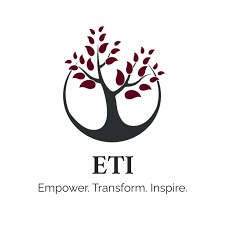Workshops and Masterclasses

The Power of Campaigning for the Social Sector
Hosted by
Dr Sukriti Chauhan, CEO,
ETI services
Introduction
Campaigns form a critical part of change and have become critical tools for advocacy for impact. Campaigns for the social sector- that focuses on the social and economic activities that are carried out to benefit society. Well-crafted and implemented campaigns provide us opportunities to bring different stakeholders together, share experiences and highlight stories for impact. Campaigns are changing with the introduction of social media and we must remain up to date - engage with new age tools to ensure change. This session will focus on how to curate, why we must curate and what does impact look like - with global and India examples.
Learning Objectives
1. To enhance the awareness around campaign creation and a pathway to success
2. How can we all be better campaigners?
3. How to pick an issue that matters- there is a plethora out there- how does one truly select?
Key Insights from the session
Here are the insights and key takeaways from the session:
1. Successful campaign creation expertise shared
2. Making an ignored issue a national priority- how do we do this?
3. How do we really measure success
4. Campaigns that did not work and why?
5. Challenges of campaign creation and implementation
About the Facilitator
Dr Sukriti Chauhan
CEO
Dr Chauhan, an INLAKS scholar, is a trained lawyer with a Masters in International Development Law and Human Rights from Warwick University, UK. She has close to a decade of advocacy and communications expertise in public health and human rights, working with the highest offices in India including the Honorable President and Prime Minister. She started her career with PATH, India, working closely on HIV/AIDS, sexual reproductive health, cervical cancer prevention and maternal and child health. As a Director at Global Health Strategies, Sukriti led the Tuberculosis Control and Prevention Project, resulting in national-level policy changes and a coalition of members of parliament, as well as set up the $50 million funding pool under the Grand Challenges in Global Health initiative in India. She continues to work closely with Dr Soumya Swaminathan, Chief Scientist, World Health Organization on mental health in India.
She collaborated with the Indian Council of Medical Research (ICMR) to set up a Communications Unit to build the capacity of scientists to effectively and credibly relay scientific evidence to the public and key decision-makers. She also spearheaded the implementation of a champions-based strategy to create an enabling environment for the uptake of family planning services with a focus on spacing and access to the basket of contraceptive choices, with a rights-based perspective in six states in India. Recently been awarded her PhD titled ‘Legal and Social Impact of HIV/AIDS on Abandoned Housewives in Kolkata and Delhi’ from the Jawaharlal Nehru University, Sukriti has widely presented and published her work at the global and national levels.
Shireen Yachu, Senior Research Analyst, ETI: Shireen has completed her under-graduation in sociology from Sri Venkateswara College, University of Delhi and pursued a masters in sociology from Delhi School of Economics, University of Delhi. She has been working in the development sector on issues of intersectional rights (gender, tribe, class), climate change, public health and environment. She strongly believes in ensuring a multi-stakeholder approach with keeping the persons affected at the center and ensuring an intersectional lens is incorporated for transformative change. Her work has been towards capacity building, research, writing and advocacy, as well as conducting workshops and incorporating gender lens into work. She has worked for projects on building capacity of young girls for safety, women labor force participation, creating a strategic framework for gender-responsiveness of water conservation in Rajasthan, research project on creating value for migrant workers and industries in India by looking at the impact of the COVID-19 pandemic and building suicide prevention in India.
Avantika Mohan, Junior Research Analyst, ETI: Avantika Mohan is a Junior Research Analyst at ETI. She graduated from Delhi University with a degree in Political Science in 2020. She has worked with the University of Oxford, TIME Magazine and World Risk Governance on CSR and public policy projects. She has a keen interest in multimedia, governance, advocacy, research and strategy for reformation.



